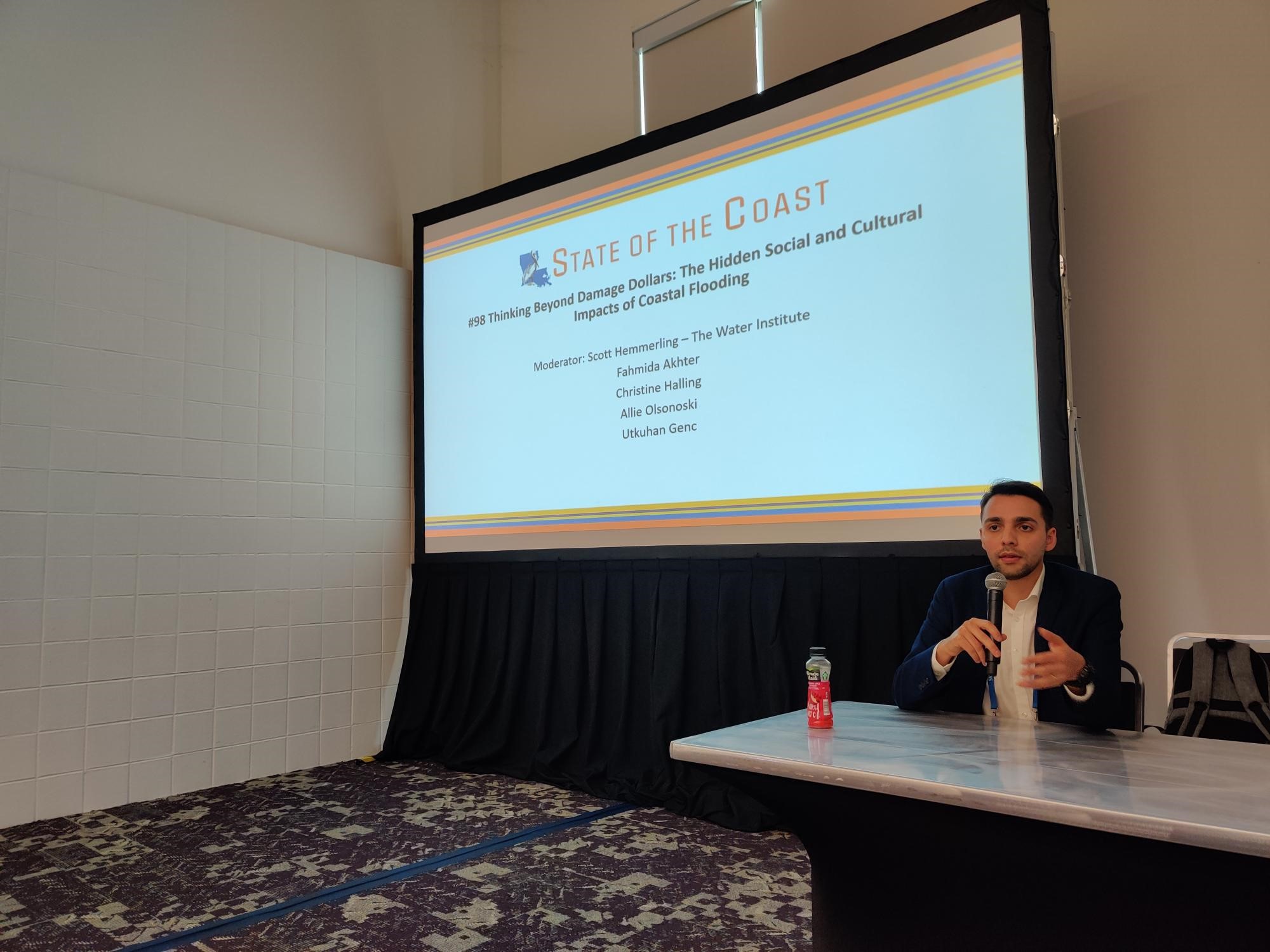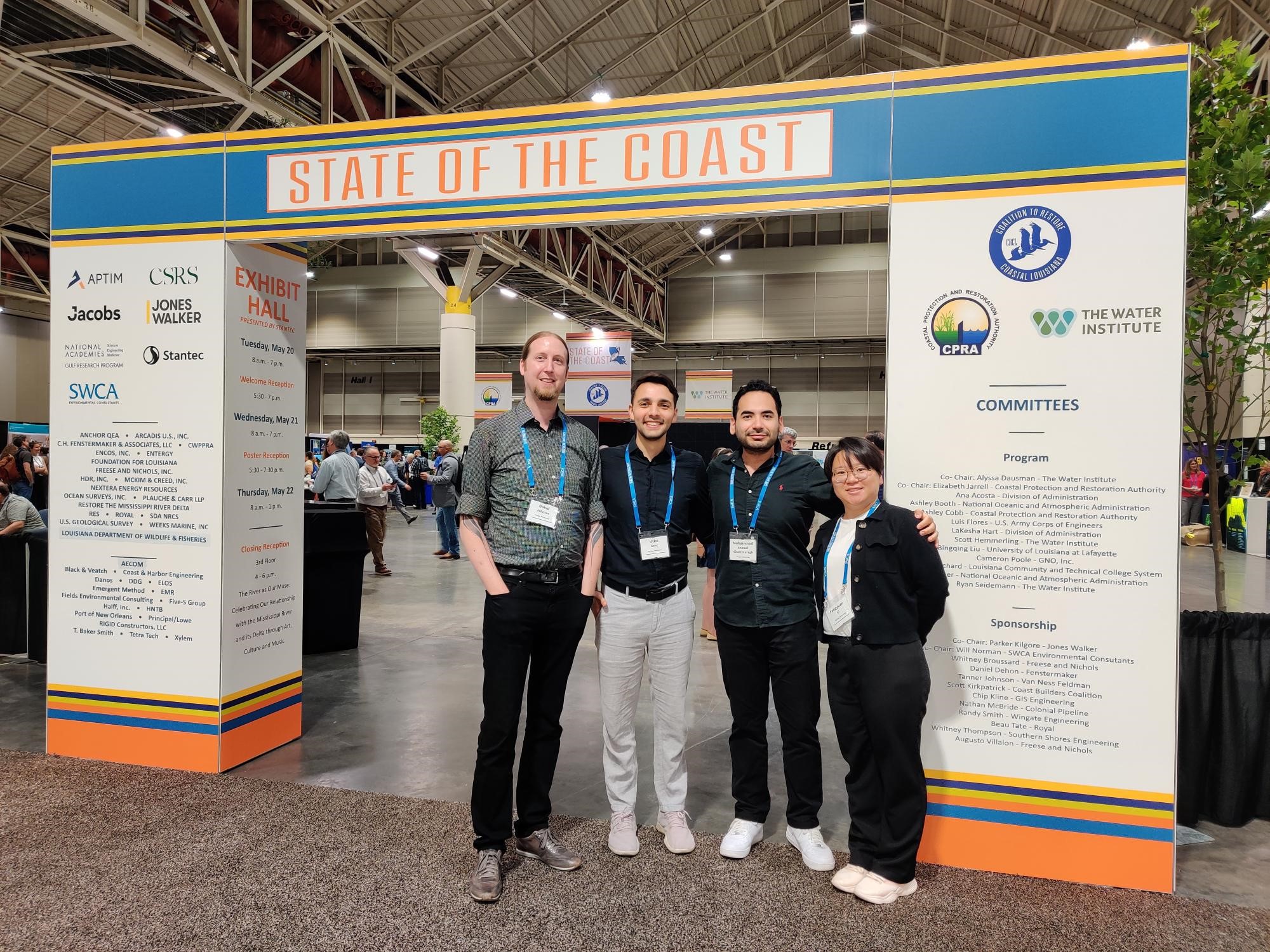Ph.D. Student Awarded at 2025 State of the Coast Conference.
Ph.D. Student Awarded at 2025 State of the Coast Conference.
Utkuhan Genc, a Ph.D. student in Purdue University's Edwardson School of Industrial Engineering, earned third place in the graduate student oral presentation category of competition at the 2025 State of the Coast (SOC) conference for his innovative research on equitable coastal adaptation strategies. His work, "Using Equitable Access to Essential Services as Guidance for Investments in Coastal Adaptation" examines how flood damage disproportionately affects rural communities and exposes policy implications.
The 2025 State of the Coast conference brought together over 1,300 scientists, policymakers, and community leaders to share solutions for Louisiana’s pressing coastal challenges. The student competition, judged independently by Louisiana Sea Grant, exhibited cutting-edge research from high school to graduate levels, with awards ranging from $75 to $500. Julie Lively, Executive Director of Louisiana Sea Grant, said, “Their research demonstrates the variety of needs in coastal Louisiana and an array of tools to address them.”

Utkuhan Genc, Ph.D. student, presenting at the State of the Coast Conference
Genc presented in session #98, "Thinking Beyond Damage Dollars: The Hidden Social and Cultural Impacts of Coastal Flooding," which focused on how technical tools such as predictive models and benefit-cost analyses, while important, frequently overlook the social factors that determine a community's ability to respond to and recover from disasters.

Genc's research addresses a critical gap in how we approach coastal adaptation investments. While traditional damage assessments focus on economic losses and physical infrastructure, his work examines how natural hazards disrupt access to essential services like healthcare, education, and emergency response– particularly in rural communities where alternatives are limited or nonexistent. His findings reveal that rural areas face heightened vulnerability not just from the natural hazards themselves but from the cascading effects when critical services become inaccessible and no backup options exist.
The policy implications of Genc's research offer concrete guidance for decision-makers. His analysis shows that building redundancy in access to emergency services can significantly enhance community resilience. This is especially relevant for rural areas where essential services are increasingly closing due to decreased demand, leaving communities with fewer alternatives when disasters strike. His work suggests that even when stakeholders disagree on which assets are most critical to communities, they can still find common ground on the right course of preventative action.
Working under the mentorship of Ravi and Eleanor Talwar Rising Star Associate Professor David R. Johnson, Genc's research integrates industrial engineering principles with community-centered approaches to develop data-driven tools for equitable climate adaptation. His broader research portfolio includes work on transportation networks, risk modeling, and rebound effects in climate policy, all with a focus on protecting vulnerable populations. This interdisciplinary approach reflects the Environmental Decision-Making Lab's commitment to research that addresses both technical challenges and social equity.

Ravi and Eleanor Talwar Rising Star Associate Professor, David Johnson, Utkuhan Genc, Mohammad Ahmadi, and Fangyuan Li at the State of the Coast Conference
Fellow members of Johnson's research group, including Mohammad Ahmadi, Fangyuan Li, and Professor Johnson himself, gave oral presentations focusing on damage estimation for the Gulf Coast region. Together, the team collaborates with Louisiana's Coastal Protection and Restoration Authority to translate advanced modeling techniques, adaptive risk management, and detailed data analysis into practical policy solutions. Their collective work demonstrates how academic research can directly inform the tools and strategies used by decision-makers to protect coastal communities.
The recognition of Genc's work at SOC 2025 highlights the growing importance of interdisciplinary research in climate adaptation planning. As coastal flooding and erosion intensify due to climate change, approaches that consider both technical and social dimensions become increasingly vital for creating truly resilient communities. The Environmental Decision-Making Lab's success at the conference reflects the Edwardson School of Industrial Engineering's commitment to research that not only advances scientific understanding but also addresses real-world challenges with practical, equitable solutions.
